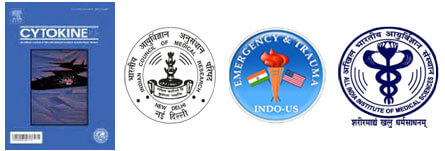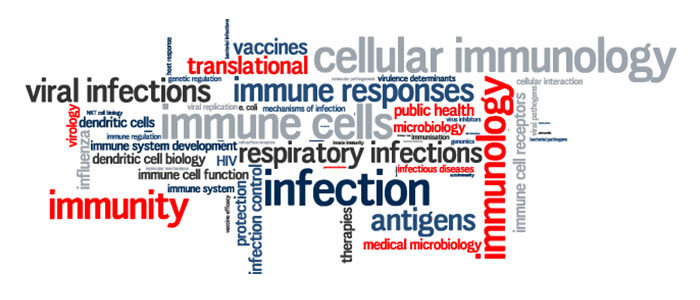Over a Decade ago INDUSEM started its Signature Program to bring Basic Scientists and Clinicians to work together to map outcomes in patients with post trauma sepsis. This was the Maiden and Premier Translational Medical Sciences Movement for India which led to the first PhD Program in Emergency Medicine in India at AIIMS New Delhi.
Till date our program has produced 3 PhD Candidates who will carry forward the Indian Vision of Bringing Solutions to Cure Challenges in Acute Medical Conditions.
When we started this novel idea there were Many concerns and over the years collaboration and creativity have taken precedence.
Below is one of our Landmark Publications in CYTOKINE JOURNAL.
This publication culminates the years of dedicated work to create a niche for India in the field of Translational Sciences in Emergencies Trauma and Shock.
Coexistence of Th1/Th2 and Th17/Treg imbalances in patients with post traumatic sepsis. Dublu Lal Gupta, Sanjeev Bhoi, TeenaMohan SagarGalwankar D.N. RaoCytokine 88 (2016) 214–221.
The studymaps the imbalance in Th17 cells and Treg cells in the peripheral blood of patients with sepsis and states that higher ratio of Th17 and Treg cells may be associated with poorer prognosis. These markers could be the predictors of poorer outcomes in patients in trauma shock. Having these high markers could call for eraly aggressive interventional and prevent mortal sepsis in Trauma Patients.
Link: http://ac.els-cdn.com/S1043466616305154/1-s2.0-S1043466616305154-main.pdf?_tid=8c472164-835e-11e6-a19c-00000aacb35d&acdnat=1474835458_8ef81287ad1bbbf695b2d576b4fa4961
The Indian Council for Medical Research Funded this maiden Research Program which rolled out the Translational Sciences Program for India in Emergencies, Trauma and Shock at the Center for Research in Emergencies, Shock and Trauma (CREST) at the AIIMS JPN Apex Trauma Center in New Delhi.
“Education Research and Care are three pillars of Academic Medicine and Academicians have a responsibility to build Their careers around these pillars. INDUSEM and Its Leaders embody all the virtues of being True Academicians.” Said INDUSEM CEO Dr. Sagar Galwankar
Images: Courtesy http://medicine.unimelb.edu.au/__data/assets/image/0010/678646/Microbiology-and-Immunology.png (Bing Images) Bing images for Cytokine Journal

Transnational Trauma Sciences
Related Links:
- Prestigious US-INDIA NIH Research Grant Award for INDUSEM Leaders
- Prashant of Pediatrics Publishes in JAMA
- INDUSEM-OPUS12-Wolters Kluwer Alliance to Lead International PubMed Journals
About INDUSEM :
The INDUSEM mission is to envision and implement the future of Patient Care across the world. The partnership brings together Expert Educators, Inquisitive Innovators and Physicians supporting Safe Patient Care across India, United States and the World. INDUSEM is the Top International Partnership across the World and brings together Institutions, Individuals and Initiatives focused on improving patient care globally. Till date INDUSEM has reached over 50,000 Experts and its reach continues to grow daily. For more information, visit www.indusem.org
About AIIMS, New Delhi :
All India Institute of Medical Sciences Delhi was established in 1956 and operates autonomously under the Ministry of Health and Family Welfare. AIIMS was the vision of Rajkumari Amrit Kaur, the first Health Minister of India, to establish an institute of such nature in India. Today AIIMS is one the World’s Leading Medical Education, Research and Patient Care Institute. For More Information: www.aiims.edu
About ICMR
The Indian Council of Medical Research the apex body in India for the formulation, coordination and promotion of biomedical research, is one of the oldest and largest medical research bodies in the world. The ICMR is funded by the Government of India through the Department of Health Research, Ministry of Health and Family Welfare. ICMR’s 26 National Institutes address themselves to research on specific health topics like tuberculosis, leprosy, cholera and diarrhoeal diseases, viral diseases including AIDS, malaria, kala-azar, vector control, nutrition, food & drug toxicology, reproduction, immuno-haematology, oncology, medical statistics, etc. Its 6 Regional Medical Research Centres address themselves to regional health problems, and also aim to strengthen or generate research capabilities in different geographic areas of the country. For More Information: http://www.icmr.nic.in/



